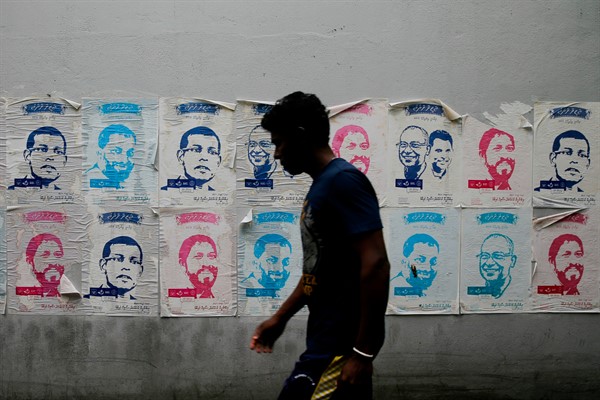ADDU, Maldives—Visitors are slowly returning to the famous beach resorts of this island nation in the Indian Ocean after it reopened its borders last month, having largely contained its initial wave of COVID-19. While it failed to avoid the virus entirely, the Maldives has registered a relatively small caseload of around 5,300, including 21 deaths, confined largely to its crowded capital, Male. In recent days, however, community transmission across the atolls has increased at an alarming pace.
Around a third of the country’s estimated 550,000-strong population live in Male, on one of the most densely populated islands on the planet, and specialized health care is largely unavailable on the other 186 inhabited islands. As the resort islands revert from quarantining Maldivians back to essentially quarantining paying guests, once-allayed fears that the pandemic could ravage vulnerable local communities are intensifying again. Moreover, for a nation dependent on tourism for more than half of its GDP, a high toll from the pandemic seems unavoidable; the government now hopes to attract 850,000 visitors this year, a far cry from the record 1.7 million who came in 2019. The economy is expected to contract by up to 13 percent.
Such a shock could have political repercussions, much like previous calamities in the Maldives’ troubled recent history. After a major tsunami devastated the country in 2004, the fallout forced democratic reforms that loosened the vise-like grip of autocrat Maumoon Abdul Gayoom, who had ruled the country for 30 years. But the aftermath of the 2008 financial crisis hampered the reform efforts of Gayoom’s successor, Mohamed Nasheed, the country’s first democratically elected president. Following months of unrest, he resigned in 2012, later claiming duress amid a mutiny by security services.

